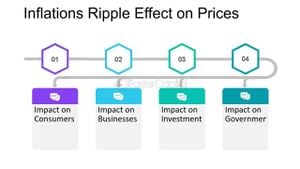On February 21, 2025, Temu announced significant updates to its privacy policy for users in South Korea, reflecting the growing concerns over data collection practices amid heightened scrutiny of digital platforms. The changes require users to provide personal information such as unique identification numbers, transaction amounts, addresses, phone numbers, device information, data usage levels, and other relevant details to Temu's partners operating within South Korea.
This update arrives as the South Korean government intensifies its focus on data privacy, particularly following the controversial practices linked to the Chinese chatbot application, DeepSeek. On February 17, the South Korean government temporarily banned the download of DeepSeek, owing to fears of unauthorized data collection. With this backdrop, the new regulations instituted by Temu seem to reflect the pressures facing Chinese tech companies operating in foreign markets.
A representative from Temu stated, "The scope of third-party companies receiving data has been expanded to cover Temu's service offerings in South Korea." This policy revision has raised eyebrows as the Personal Information Protection Commission (PIPC) has already been investigating various Chinese e-commerce platforms, including Temu and AliExpress, over potential privacy violations. Earlier investigations by PIPC culminated with AliExpress facing fines of 1.9 billion won (approximately 1.32 million USD) due to similar violations.
Despite the widening net for data sharing, the types of personal data requested from users still remain consistent. The PIPC is expected to announce the findings from their investigation of Temu shortly, with officials confirming, "The investigation on Temu is nearing its final stages, and results will be announced soon." This adds another layer of anticipation for both users and the company as they brace for the regulatory outcome.
The quickening pace of regulatory scrutiny reflects South Korea's burgeoning digital privacy framework, which aims to safeguard citizen information as e-commerce continues its rapid expansion. This scrutiny is not unique to Temu but has become emblematic of the broader challenges faced by Chinese tech firms operating internationally, where data practices are increasingly under the lens of governmental oversight.
Temu, integrated within this tumultuous environment, has optimized its data policy with the hopes of remaining compliant and operational, but such adaptations might affect user trust. The company’s request for sensitive user data could push users to reconsider their engagement, especially if they perceive the platform as less secure. The optics of the enforcement and the PIPC's enforcement outcomes may prove pivotal as cross-border debates about data privacy and protection gain global traction.
The adjustments to their privacy policy seem like both a defensive maneuver against regulatory pressures and a proactive strategy to sync with increasing expectations for consumer data privacy. By altering its approach, Temu positions itself to navigate the complicated avenues of compliance, but must also address the anxieties of its user base concerning how their data will be handled.
This move is more than just about adhering to legalities; it's also about maintaining public trust. Amid loud conversations about data security, each step, from engaging users with required disclosures to ensuring transparency on data utilization, could reshape Temu’s reputation and their future as it competes within the crowded e-commerce space.
Looking forward, how Temu manages this balance of regulatory compliance with user privacy will be closely observed. With the specter of penalties hanging over them, the need to adapt urgently may define not only their operational capabilities but also outline the precedence of data integrity within the rapidly changing global digital marketplace.



